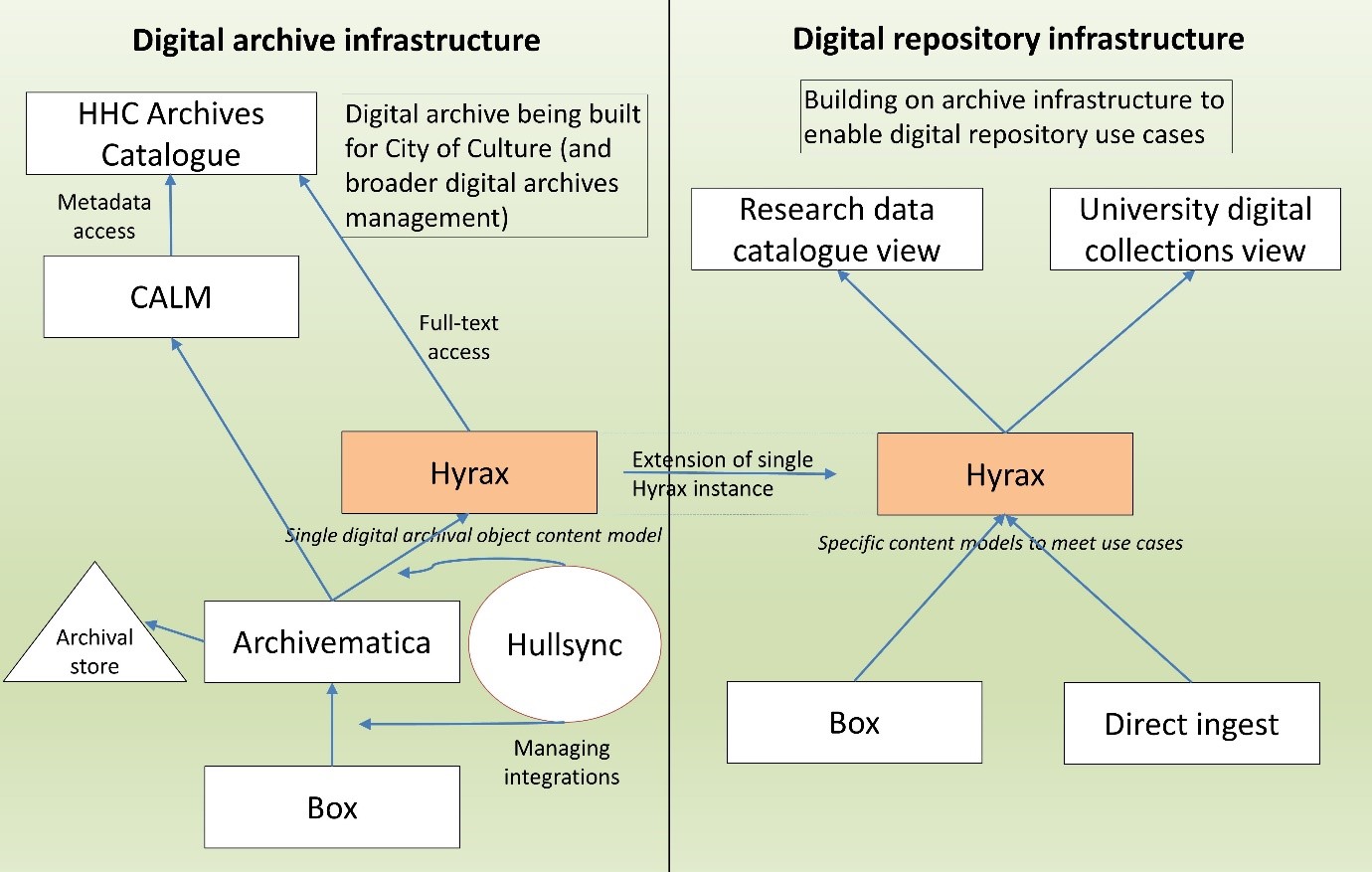Laura Giles is City of Culture Digital Archivist at The University of Hull
Back in October 2017 we at the University of Hull blogged about the early stages of our plan to archive the Hull 2017 City of Culture. The project was in its infancy then so we’re keen now to share an update of where this journey has taken us since.
The idea for the Hull City of Culture Digital Archive was conceived shortly after the announcement in November 2013 that Hull was to be the holder of the 2017 title of UK City of Culture. Knowing that 2017 had the potential to be a complete game-changer for Hull, it was seen as crucial to capture a historical record of the year. There was a strong desire to document this time to guarantee that decisions made, works created, residents engaged, visitors attracted and money spent were chronicled and accessible to researchers in the future.
The initial plan when the project was conceived was that the university would directly hire a dedicated software developer to work alongside a project digital archivist. After a couple of unsuccessful attempts to recruit to the developer role, it was decided to put the work out to tender, which is how we found ourselves working alongside the talented folk at CoSector and Cottage Labs who have a wealth of expertise around repository management and open source systems.
The technical infrastructure for the digital archive was proposed as a continuation of the work achieved as part of the Filling the Digital Preservation Gap project, a collaborative project between the Universities of Hull and York. The output of that project was a prototype system designed for the long term preservation of research data that tied together Box, Archivematica and the Hyrax digital repository from the Samvera Community. After in-depth discussions with CoSector the infrastructure we eventually settled upon was to connect use of Box, Archivematica, Hyrax, Calm and Blacklight, with specially written open source application Hull Synchronizer managing their integrations. This allows for some continuity with the systems that we already use and also means that the digital archive system can eventually be rolled out to accept all our digital collections.

Having gained funding from the Higher Education Innovation Fund (HEIF) for 2019-2020 we are now continuing to work with CoSector on the implementation and further development of the digital archive infrastructure. Currently we are working on user acceptance testing and starting to reach out to academics across the university to talk about how they might make use of the collections in teaching and learning. Conscious of the need to sustain a solution over time, we are keen to use the City of Culture archive as a catalyst that can provide value on a broader scale. To that end, the HEIF work is also exploring options for how other organisations might use the infrastructure for their collections, and looking at how the Hyrax repository can be adapted for other digital collections management use cases.
Given that we collected over 130,000 digital records resulting from the City of Culture’s activity there is obviously also a huge amount of archival processing to keep us busy. Profoundly aware of our duties to protect personal data one path we are currently testing is the use of BitCurator pre-ingest to detect records in our collection that contain sensitive data such as phone numbers or email addresses.
Ultimately, the core goal of building this digital archive system has stayed the same: to preserve the story of the 2017 City of Culture and to make sure that it is accessible in the future. Perhaps our biggest challenge has been managing the shifting landscapes around that goal: revising views about technology, getting the right personnel, chasing funding, and organisational adjustments both within the university and with our key depositors. Our three-legged stool has endured some serious manhandling! Nevertheless, it is really exciting to be able to say that we are making significant steps towards providing access to born digital archives and that we are starting this with a collection that tells the story of the cultural transformation of Hull.

















































































































































